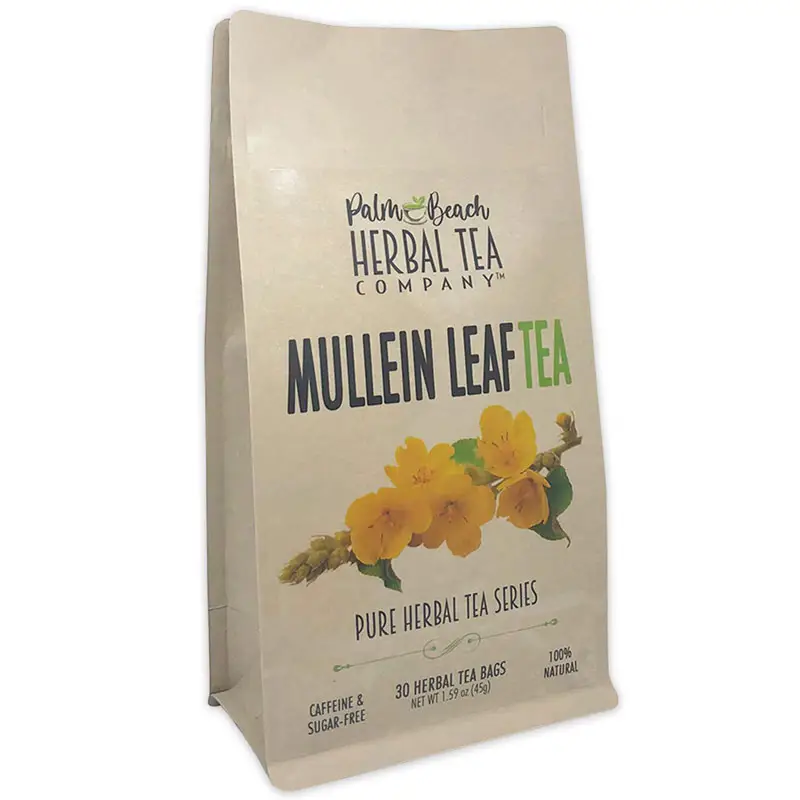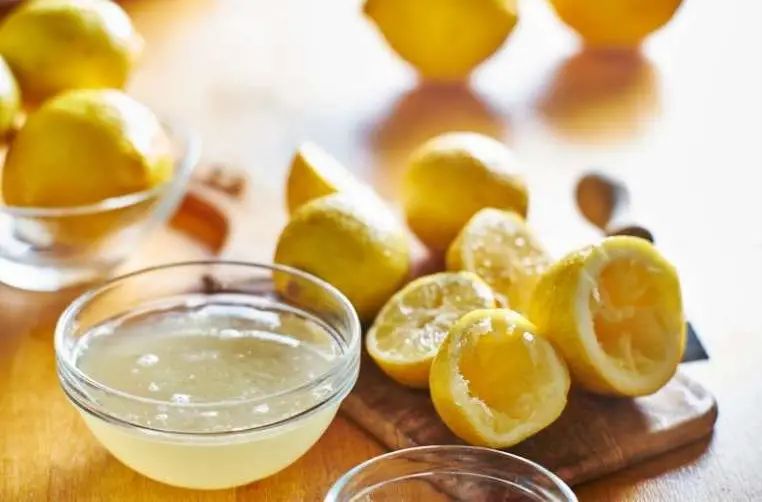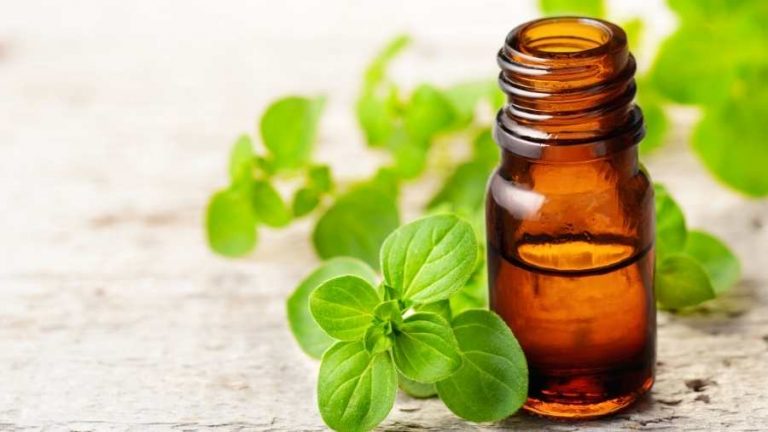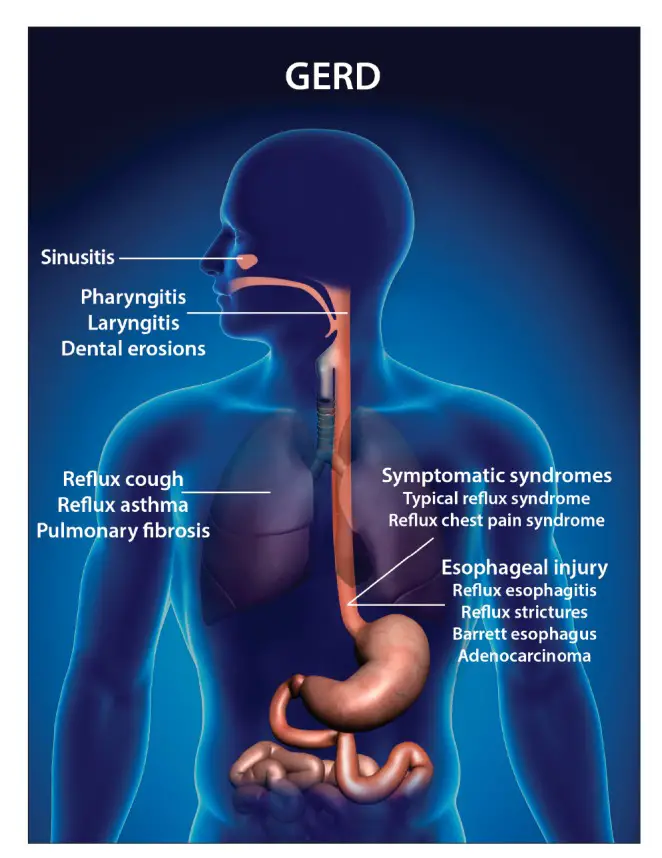Mullein Tea & Asthma: Is Mullein Good For The Lungs?
If you have asthma like I do, then you probably do whatever you can to take your inhaler less. I’ve found that drinking tea regularly is important for my lung health and my health overall, and it helps me do just that. I recently read about mullein tea, which is often used medicinally for respiratory illnesses, and I wondered: is mullein tea actually good for the lungs?
Mullein is a plant with anti-inflammatory properties that is used to clear mucus, ease pain, and treat asthma, COPD, cough and similar respiratory conditions. The easiest way to use it for lung health is to drink mullein tea, which is safe, caffeine-free, and a great choice for anyone with asthma.
There is currently limited scientific research on mullein tea and asthma specifically, but it has been used traditionally for centuries across many different cultures to treat a host of lung ailments. Drinking a cup of tea will never be a replacement for asthma medicine (and always talk to your doctor before making significant changes in your diet, supplements or medicine). But I find that drinking mullein tea is a nice way to help ease my asthma symptoms. If you’d like to learn about more teas that can benefit asthma, please see here. Otherwise, let’s jump into the benefits of mullein tea.
What Is Mullein Tea?
Mullein tea is a mild, herbal tea made from the mullein plant. Mullein grows throughout Europe, Africa, Asia and parts of North America, where it is generally considered a weed. Because it is considered a weed, many people aren’t aware of its health benefits (similar to dandelion, which can also make a healthy tea). But mullein has been used traditionally for centuries to treat respiratory conditions like asthma. For example, Native Americans have used mullein to treat respiratory conditions, and it is popular in Appalachia as a home remedy for colds.
Mullein can be consumed in several ways, such as an oil or even smoking it. But it is most often consumed in tea form.
Mullein tea can be made with the roots, the leaves or the flowers of the mullein plant. Including the flowers will make the tea sweeter. If you are lucky enough to live near mullein plants that you consider clean, then you can harvest some and use it to make your own tea. However, the easiest way to drink mullein tea is to purchase mullein tea bags (find some that are reasonably priced on Amazon here).
And please note that the seeds are poisonous (which won’t be an issue if you buy premade tea bags).
Mullein tea has an earthy taste that is hard to describe. Many people enjoy it as-is, but if you don’t like it, feel free to sweeten it with a little honey. Honey can also be soothing for the throat, and it may be particularly soothing for people with asthma (learn more about helpful foods for asthma here).
Mullein tea is believed to have many properties that are beneficial for human health. For example, it is often used as an anti-inflammatory, an astringent to promote wound healing and alleviate pain, as a diuretic and a sedative (source).
Unfortunately, there are currently no recent human studies looking at the respiratory health benefits of mullein tea – I hope we’ll see some soon. But test tube studies do show that may be antiviral, especially against influenza virus (source). Mullein tea may also have antibacterial properties (source), and mullein oil is often used to treat ear infections (source).
Mullein tea is also anti-inflammatory, which, as we’ll cover below, is one of the main reasons it can be beneficial for asthma and COPD patients.
What Does Mullein Do For The Lungs?
Mullein tea has been used by cultures throughout the world for thousands of years to treat the lungs and promote better lung health. Specifically, it been used to treat asthma, bronchitis, tonsillitis, pneumonia and tuberculosis (source).
Likely the main way mullein treats the lungs is by working to reduce inflammation. This can relax the muscles or the airways, making it easier to breathe. It can also clear mucus and relieve irritation of the mucus membranes of the mouth, all of which can make breathing easier.
Mullein tea’s antiviral properties can also be very beneficial to the lungs, since respiratory ailments often being with viral infections (source).
Mullein Tea for Asthma & COPD
Despite limited studies, there is reason to be hopeful about the effect of mullein tea on asthma and COPD.
For example, a literature review from the American College of Healthcare Sciences says that mullein may be a safe treatment for asthma because it is a demulcent (meaning it forms a protective film over the mucus membranes in the mouth, relieving irritation) and an expectorant (meaning it can help loosen mucus so you can cough it up).
Mullein also reduces inflammation, which is so important for asthma patients. Asthma is caused by inflammation of the airways, so reducing inflammation is important for controlling symptoms. For example, all my favorite teas for asthma are anti-inflammatory.
According to that same literature review, the anti-inflammatory and antispasmodic therapeutic actions from mullein can also “help relax the muscles during an attack while opening the bronchial tubes.”* Native Americans used mullein in this way, to relieve lung congestion and relax muscle spasms.
*Please note, however, that this does not mean mullein will treat an asthma attack. Only asthma medicine and medical intervention can treat asthma attacks.
Finally, this study further strengthens the case for using mullein to reduce muscle spams (like those you experience with asthma), which is how it’s often used by tribes in Pakistan.
As we know, there are no asthma cures. And there is no replacement for your medicine. But teas like mullein tea can help soothe your throat and your muscles, and they can help deal with all the mucus. For this reason, I think mullein is worth trying. You can journal your results (see some tips on how to journal for asthma management here), to see if it has a direct impact on your symptoms.
Or, you can simply see if you enjoy the taste and ritual of sitting down with a mullein tea, and go from there.
How To Use Mullein For A Cough
While there aren’t any recent studies on the efficacy of mullein for a cough, there is an interesting one from the 1800s. At the time, mullein was used for tuberculous patients in Ireland, and there was a small study done on some patients using it. Obviously, there are limits to how much we can trust this study, but it did find that mullein helped with ‘phthisic’ conditions – ie, illnesses of the lungs like asthma and tuberculous.
Specifically, the study found that patients taking mullein saw their cough improve considerably (source).
This, along with its anti-inflammatory and pain relieving properties, suggests that mullein tea might be worth trying if you are trying to lessen a cough.
And it’s interesting to note that in the Irish study, mullein was boiled in warm milk, strained and drank while still warm, twice a day.
To use mullein to treat a cough and sore throat, you can simply make and drink a warm cup of mullein tea. It would also help to gargle the tea once it has cooled down.
Mullein Tea Cautions
Mullein is generally a safe herb, but some parts of the plant may cause skin irritation. And naturally-made tea which is not strained properly might irritate your throat. These shouldn’t be a concern if you purchase ready-made tea bags (like the ones I linked above).
We don’t know about its impacts on pregnant or breastfeeding women, so you may want to avoid it if this applies to you.
And you may also want to avoid mullein if you have excessive catarrh (ie, excessive mucus in your nose and throat) or congestion (source).
Otherwise, simply enjoy your mullein tea, see how it makes you feel, and just stop drinking it if you find it has any negative side effects on you personally.
Final Thoughts
Mullein tea is not a cure-all for asthma and lung problems. But its persistent use across time and across cultures suggests that it has lung healing properties. And we know it’s an anti-inflammatory that can help loosen mucus. It’s safe and may help less your asthma or COPD symptoms, making it worth a try in my books.








